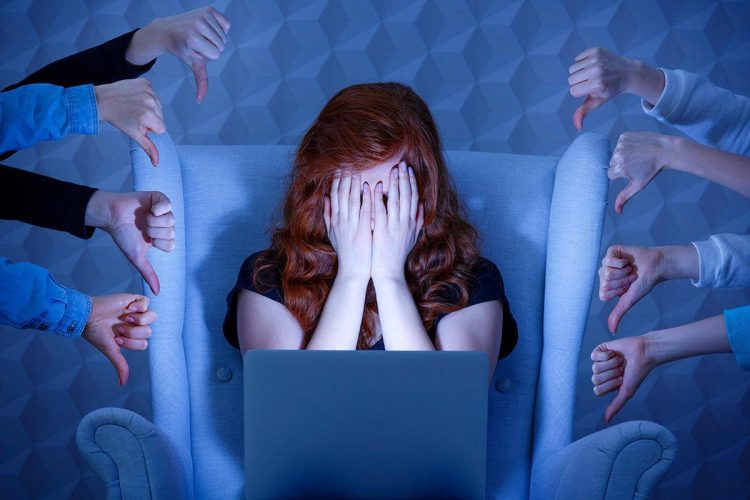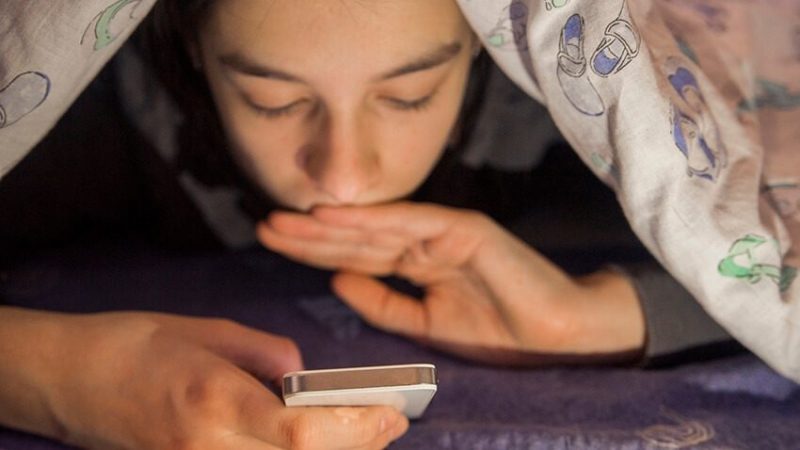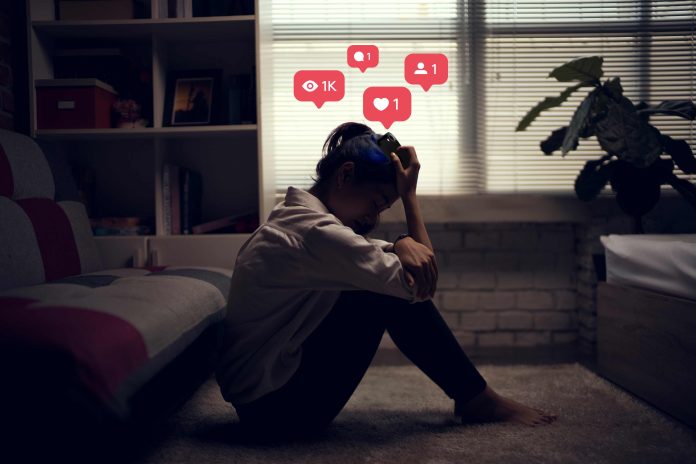The craze of social media
Do you often check your phone for the recent memes or the updated posts on your Facebook wall? Did you catch up with contacts on Facebook, post photos of your dog on Instagram?
There is no denying the fact that today Social media usage is one of the trendiest online activities. In 2019, a projected 2.95 billion populace were using social media across the world. This number is expected to increase to approximately 3.43 billion in 2023. Social network infiltration is continuously escalating across the world. This can be seen as this craze stood at 49 per cent in January 2020.
A large population of the world is on social media right now. For example- about 77% of the American population has a social media profile of some sort. All these social media profiles such as Facebook, Twitter, YouTube, and Instagram are intended to fetch people together. But the lack of interpersonal face-to-face relationships, well-curated contented, and persistent cyber-bullying are resulting in some teenagers to undergo symptoms of anxiety, depression, and loneliness. Now the question arises, do the teens spending more time on social media more expected to suffer anxiety or depression? Recent studies have shown that teenagers who spend excessive time on these platforms of social media are more likely to suffer from adverse effects like loneliness and depression. This results due to the overuse of social media and getting bullied online.

Facts and Data
The one main reason that correlation seems more than coincidental is that an increase in depression occurred in the cycle with extensive raise in the use of smartphones. This is verified in many cases and studies. Some of the data that gives an insight into the correlation between the use of smartphones and depression are as below: –
1.Smartphones came around 2007, and by the end of 2015, about 92 per cent of teens and youngsters owned a smartphone. As observed by the study’s lead author, San Diego State University psychologist Jean Twenge – Smartphone adoption during this period is directly correlated with the rise in depression. This correlation matches even when matched year by year.
2.Another study suggests that in 2017, over half a million eighth through 12th-grade students exhibiting a high level of depression increased by 33 per cent between 2010 and 2015. This is the same period when the suicide rate among girls of that age also increased by 65 per cent.
3.Over that same time period, there was a sharp spike in reports of students seeking help at college and university counselling centres, principally for depression and anxiety. These visits jumped by 30 per cent in the year between 2010 and 2105.
4.Despite the attractiveness of social media and the rate at which it has become a part of modern lives, there is a noteworthy need for clear data in relation to how it has an effect on us personally. We do not know up to what extent social media affect our behaviors, public relationships, and psychological health.
5.The information that is available in many studies has linked the use of social media to depression, anxiety, poor sleep quality, lower self-esteem, hyperactivity — often in teenagers and adolescents. This list goes on.
Reasons
Let us understand how the excessive use of social media leads to depression among kids: –
-
The stress to fit in with the mass:
There is always a race among teenagers to fit in the most charming group of their class or to stay at the top of the recent trend. This existed long before social media was even a thought, but technology has magnified the difficulty in a dominant way. This trend of posting everything online is all where everything starts. People post pictures to show off the world by highlighting their best moment. Some of the things that teenagers like to put out on their social media accounts are like going to social events, attending concerts, and attaining milestones. Even though they suffer from any problem, people are not akin to post the pessimistic events of their lives online. Scrolling through their newsfeed, it is likely for them to think that all of their acquaintances and classmates are leading a perfect life. This assumption and exposure can make them consider left out.

-
Decreased Social abilities:
When we count on the menace of social media, it is significant for you to be aware of the impact that it can have on the social skills of a teenager. Interacting with your friends is more than just the use of words; it is about learning to read the body language of the person you are talking to. Understanding the tone of voice is a critical part of the puzzle that you cannot overlook. With the commence of social media platforms, teenagers now rely on Facebook, Instagram, WhatsApp, etc. to stay in touch with their peers. This makes them lose on the part of learning important social interaction skill that they will need in their life ahead. This makes them weak in handling an argument or working in a team in their work-life ahead. This can make them suffer from anxiety and depression in tough life situations.
-
Cyberbullying
Cyberbullying is another major concern of excessive use of social media platforms. In one way, social media permits teenagers to exchange a few words with all of their friends at just the touch of a button, but at the same time, this excuse takes bullying to a new altitude. Without giving much effort, teenagers can reveal each other’s top secrets or can spread fake information online. These look simple at a glance, but considering the magnitude and network of social media platform, results can be devastating. The false information can travel in no time to hundreds of your friends, and this can be the biggest nightmare if they do not know how to handle with these bullies. In the most horrible cases, a teenager’s reputation can be shattered in a matter of hours. Further, the social fallout can drive him or her to commit suicide.

-
Fear of missing out- FOMO
FOMO or Fear of missing out is an additional major mental health consequence that is said to be strongly associated with the employ of social media. FOMO is an additional room of bigger concerns of introduction and social status. After the basic needs like food, shelter, and water are met the need for insertion and social dealings rank right up. Fear of missing out leads teenagers to get worried about their social status. They are so endorsed into this race to be famous and be on the spotlight that they have forgotten about the need to be content with their own self and work towards a healthy life.
-
Disrupted concentration
A major complaint from parents these days is their children spend more time on mobile than study. They are often concerned that their kids are scrolling through their social media instead of completing their homework. The process of doing homework and other errands that require concentration becomes disrupted by the urge of the teens to check on their social media account. It has become common among teens to engage with their friends or acquaintances on social media while doing their academic work at the same time. They often take pride to be able to multitask that is social media and study at the same time. In reality, evidence shows that it slashes down the learning and performance of the students. In fact, multitasking isn’t feasible. What you end up really doing is just toggle back and forth flanked by two tasks rather hurriedly. You end up paying a cost to the brain. With poorer quality focus and regular interruption, homework takes significantly longer than it should. This cuts into free time and thus adds up stress among the teens.

Sleep deprivation is one of the most common contributors to depression among teenagers. In a recent study, it stated that teenagers who spend five hours or more time daily on social media were 70% more likely to fall asleep later or get less sleep compared to those who are online less. The quality of sleep is characteristically subdued or aggravated by social media obsession. This happens because teens are waking up late in the night, blue light from the mobile screen or from the laptop or any other gadget, hinders with melatonin making, or it can generate thoughts of FOMO (Fear Of Missing Out), which thus can lead to anxiety and stumpy self-worth.
The Solution
It may be too early to declare that social media addiction in a straight line causes depression, but the psychologists believe it does noticeably. It dramatically increases symptoms associated with anxiety and depression. As a result, it is vital for parents to become skilled at how to sympathetically keep an eye on their kids’ spending time online and to help them build healthier choices.
You are likely to seek options to reduce the risk and still permit your teenager to have the benefits of social media. An important step towards this can be keeping an open line of communication with your thieving conversation about their interest, likes, dislikes and try to be empathetic towards their needs and demands. This way, you can gain the confidence of your kids in you. Make them realize that they have someone in whom they can open their heart to when their time on social media takes a twist for the most horrible event. It is also especially important that you limit the quantity of time that teenagers use up online so that you can give confidence them to build up social skills. Help them be aware that nobody is perfect and make them understand that their peers will constantly put their best foot frontward and that will work wonder.
We saw a few new insights that cover the associations between social media overuse and how it adversely affects mental health, besides here are some tips that will help the parents alleviate internet addiction in teenagers and help them deal with them:

A few effortless tips you can use for limiting your teen’s social media use can be listed as below: –
1.Try to promote a healthy balance of personal communications, offline and online. Try to get them caught up in sports or other community actions that encourage individual relations and self-confidence.
2.Make a timeline for your kid using phone use before bed and make them follow it strictly. Ask your adolescent to put down their phone out of their bedroom after a definite time. Make them use the old alarm clock instead of a mobile alarm feature.
3.Ask them to turn off notifications which can divert them during school homework or during the family time. Ask them to complete the work first then use their phone. Restrict them doing the trendy multitasking, which is famous among many kids of their age. Make them understand how their time is wasted in doing so. It adversely affects their brain, and their productivity decreases.
4.Announce a reward for your teen for declining screen time. Try to treat them with their much-loved dinner. You may also reward them by taking them out to the movies if they trim down their time spent online.
5.It is your responsibility to help your kids gain knowledge about body positivity. Make them realize how excessive screen time affects their health and reduces their productivity. Keep an eye on their health concerns as a dark circle under eyes, headaches, etc.
6.Educate your kids on how to think decisively about the images or any content they see online. Teach them that everyone has their own life and they should be happy about it and work in its betterment. Teach them that things shown on social media are the best foot put by their peers.

